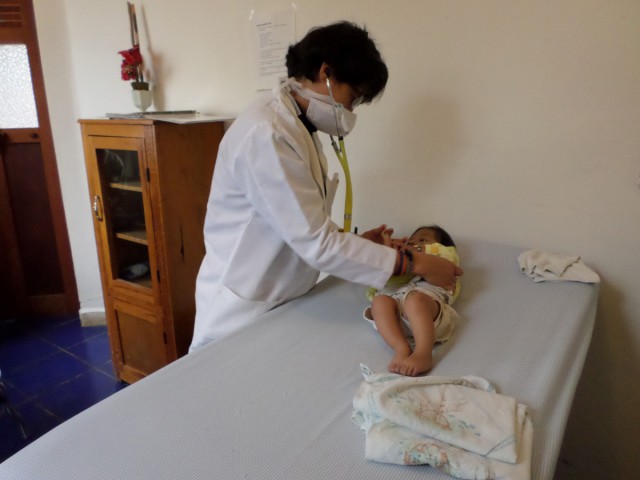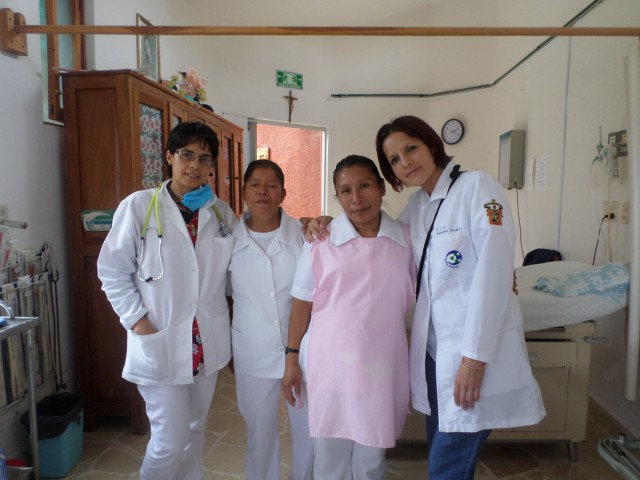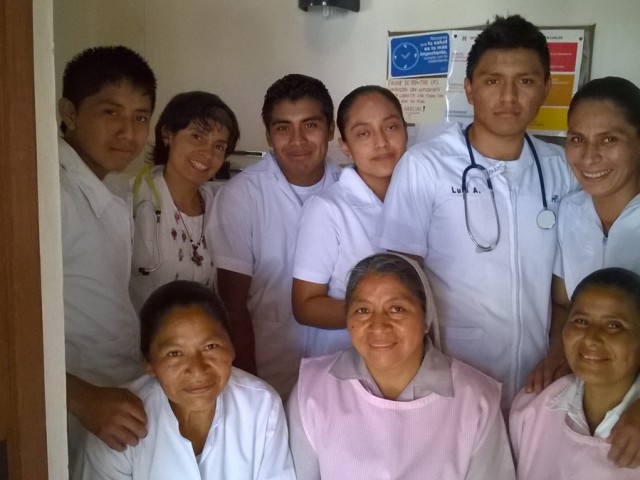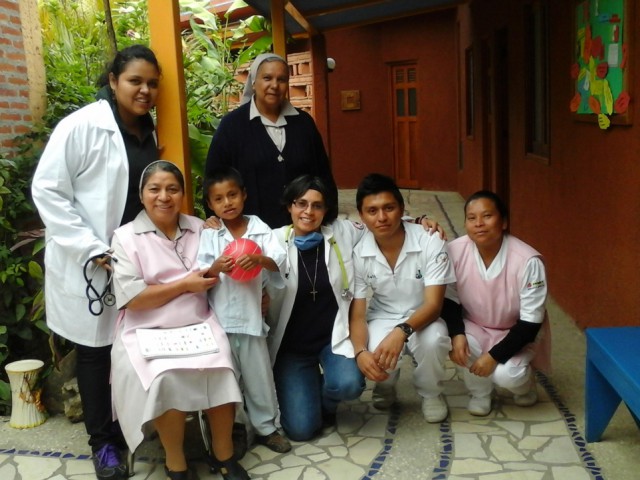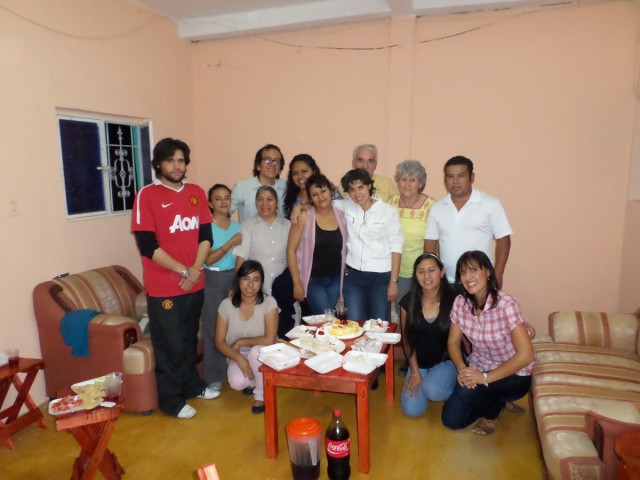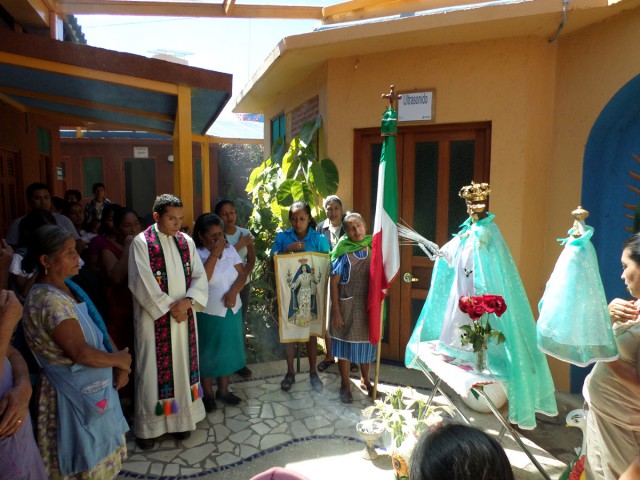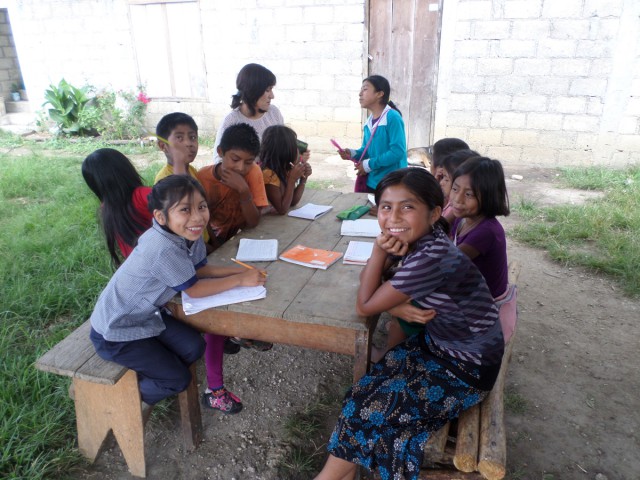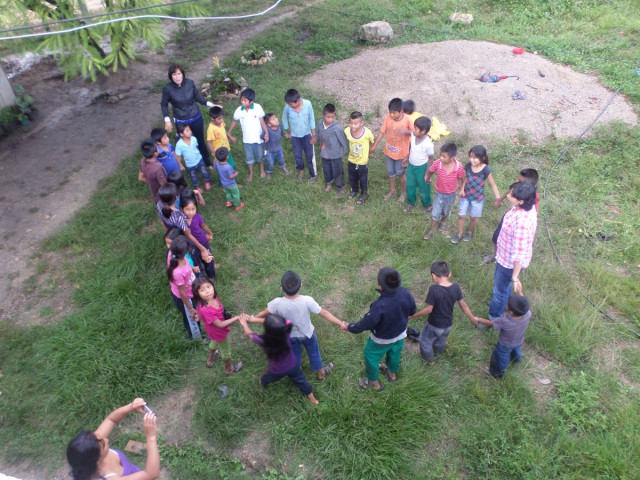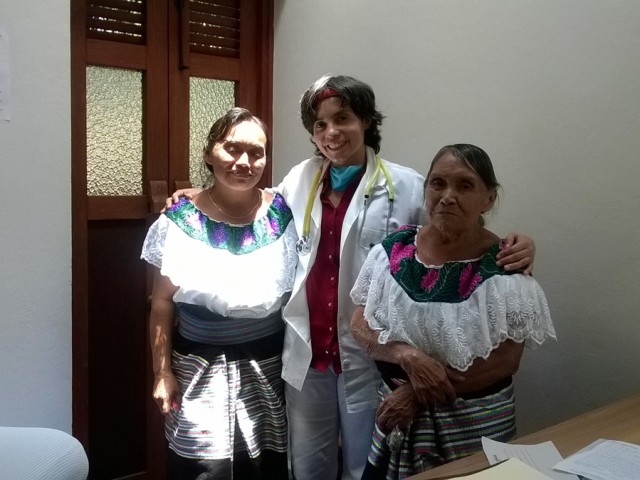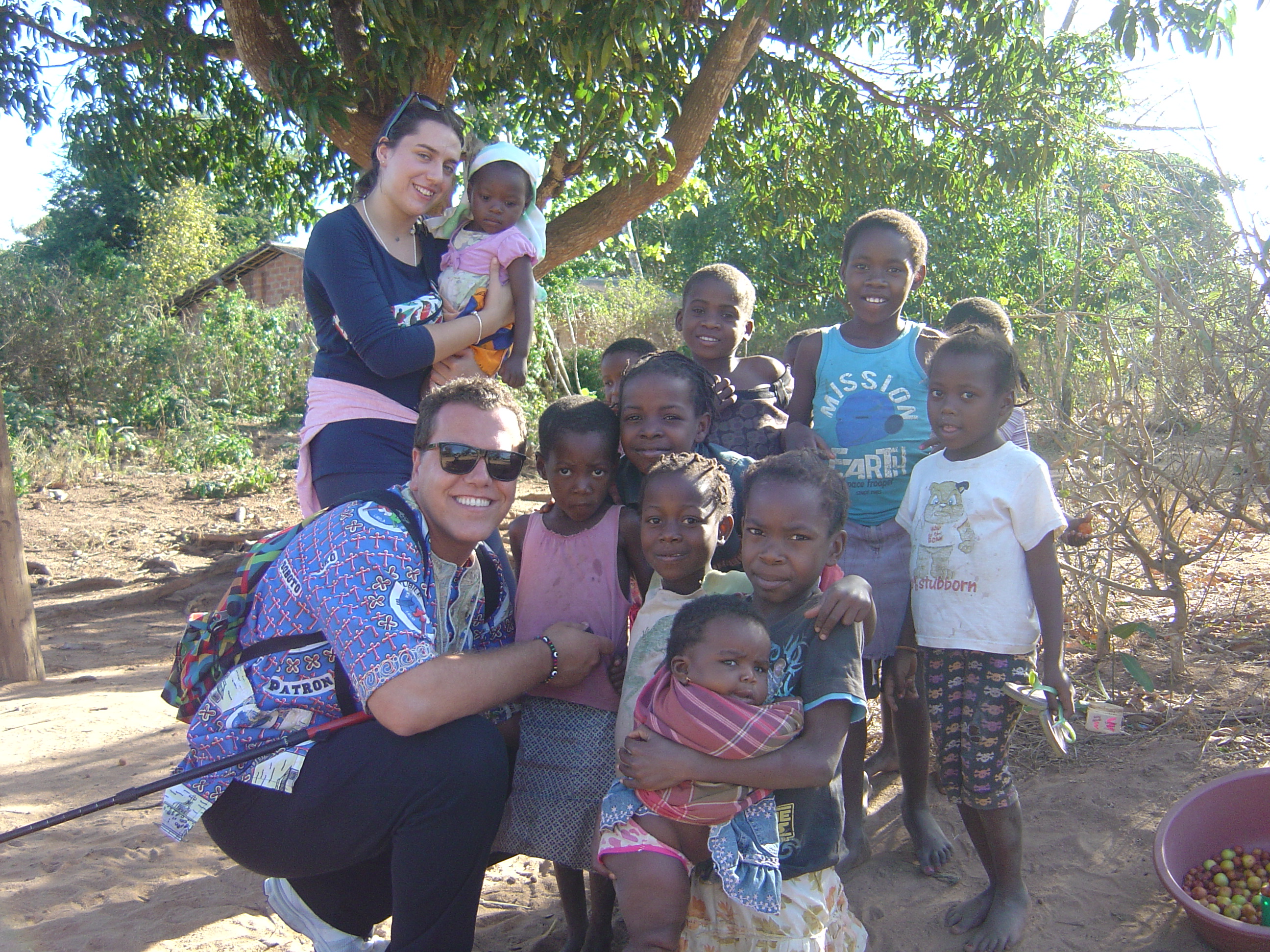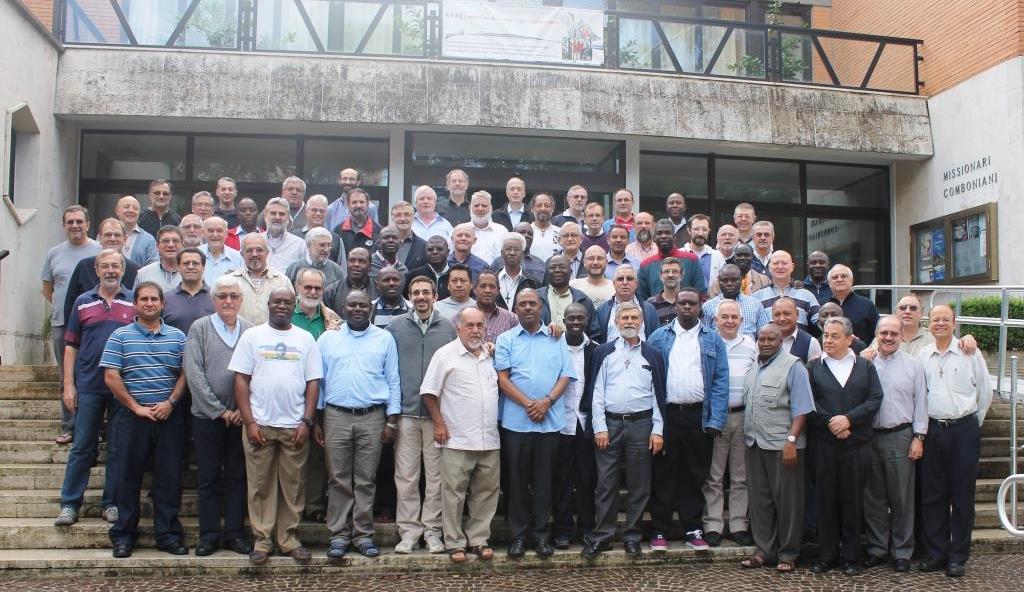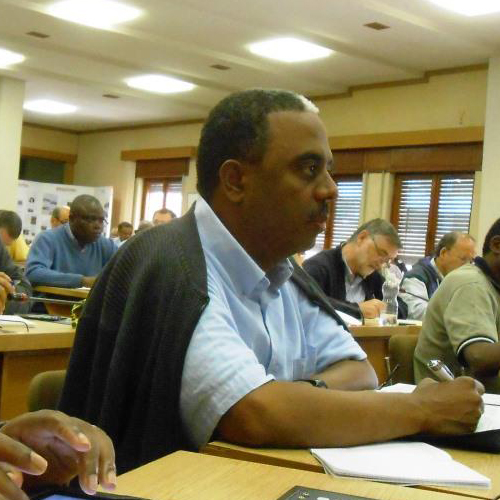 Hello to all my friends, the CLM of Mexico and the world, the Comboni Family, colleagues and family!
Hello to all my friends, the CLM of Mexico and the world, the Comboni Family, colleagues and family!
Here I share a summary of my lived experience in Chiapas, at this stage of my life that was very special and different and that God has given me, where he took me to a mission for the period from January to August of this year 2015.
I was living, working and sharing community life with my friend Rocio, who is also a CLM and we together were in Altamirano a Municipal Head of the State of Chiapas.
Chiapas is one of the 32 states of Mexico. It is located in the southeast, on the border with Guatemala. Its capital is Tuxtla Gutierrez, has several of the most important tourist destinations in Mexico, mainly Archaeological and Ecological Niche areas of great beauty. There are 122 municipalities; it is one of the states with the largest indigenous population in Mexico, since 30% of the population speaks an indigenous language of the continent. Besides the Spanish language, its official languages are: Tzeltal, Tojolabal, Tzoxil, Chol, Zoque, Lacandon, Chuj, Quiche, Kakchikel. The territory of Chiapas has a very complex morphology: the mountains formed by extensive mountainous areas, large valleys, coastal and flood plains, for this reason has great climate and biodiversity. Some areas have been declared “Biosphere Reserves” for hosting several animal and plant species. In Chiapas, important cultures were developed during the Mesoamerican pre-Columbian era: the Olmec, the Maya and Chiapaneca. Throughout the nineteenth and twentieth centuries in the State was reproduced and strengthened a wide social inequality. The abuses against indigenous peoples and rural communities generated a latent conflict until 1994 when it broke the Chiapas conflict led by the Zapatista Army of National Liberation, conflict that continues unresolved so far.
In the history of Altamirano, it is told that this town was founded in 1806 by residents of the Hacienda de San Antonio and San Vicente which asked the Vicariate of Ocosingo, own land to found a new town, choosing the place of Nacashlan to about 30 km south of Comitan, near River Tzaconeja, which in 1814 already had 90 indigenous families, all of them Tzeltal Ethnicity. First was called Ashlumal San Carlos. Ashlumal (new village). In 1911, this town that had belonged to the Department of Chilo, stands as a municipality. In 1935 the Governor Victorio R. Grajales renamed the village San Carlos to Villa Altamirano in tribute to poet Ignacio Manuel Altamirano and in 1942 it amounted to second-class municipality. In January 1994 became one of the towns occupied by the Zapatista Army of National Liberation.
We were working in the San Carlos Hospital, which was built by the Dutch government and is maintained and funded in large part by a Dutch NGO. In this health unit, all the people it attends, especially indigenous people, which are mostly Tzeltal, but also come Tojolabales Tzoxiles, Choles and Zoque.
The Parish of San Carlos Altamirano has 85 communities, but received indigenous communities belonging to other municipalities such as: Ocosingo, Oxchú, Palenque, Yajalón, Chilón … it is sad to see these poor people travel so much for medical care in this small hospital, which has resources for a first class medical care with general doctors only and has no specialists. Only in certain times of the year received medical specialists volunteer from Mexico, United States, Spain and Italy which help our people in Medical Surgical Campaigns of: Gynecology, Urology, Plastic Surgery and Dermatology. It has programs Nutrition, Tuberculosis and Mental Health.
I was shocked too, realizing that in the State of Chiapas the health sector is very poor, have few public hospitals. That’s why in this hospital, quite often it cannot be transferred serious ill patients who need specialized second- or third-level attention and we know that here will be complicated more or even die, and many fatalities could have been avoided if we count on good state health service.
Well, I also want to share my feelings in this land, because on one side has been good to work for the poor, yet have lived different feelings of sadness, pain, impotence, anger, uncertainty, because I encountered a very strong and depressing context, our indigenous brothers still live in poverty, are isolated and excluded, abandoned and trampled by the government, the institutions and the people who are not indigenous and call themselves as mestizos.
Indigenous people live in remote communities where they do not even have the basic services for a dignified life and not have rural health care. Almost no schools and for this reason a large percentage are illiterate, have no financial resources to produce their land, and there is great maternal, neonatal, child and of all ages mortality, as they are consuming by hunger, malnutrition, infections, parasites, tuberculosis, cancer, alcoholism, among other…
It is very painful to watch as they come to hospital with very advanced, complex or terminal conditions, because there was no one to attend in their communities and could not afford to move to a hospital. Some even tell us that walked for hours in the jungle and others in a truck along a road to get to our hospital. Another problem they have is that sometimes they say they are not attend in hospitals from the IMSS or Health because they do not speak Spanish and these institutions do not have staff who serve as translators. Something we liked from San Carlos Hospital was that in previous years a small school of nursing was open where they trained indigenous people as nurses and themselves translate the patients. Because all physicians are from outside and do not speak the language. I liked being there because I identified with the Comboni charisma too, as I always had in mind the motto of the Plan of Comboni: “save Africa with Africa” because here was: “save the indigenous with the indigenous people themselves.”

I arrived in January, and then in April joined this experience my colleague CLM and friend Rocio.
Together we were working in the Hospital San Carlos, she in administration and human resources, since her profession is Business Administration and I as General Doctor. There, we shared working life, as well as shared community life where renting a cottage in the village. It was nice that every day we got up early, we were going to walk and exercise, and returning home, did together the morning prayer consecrating our day and asking for all; and after that each one were going to the hospital to do our own work task. We could share, live and learn together in this missionary experience. We share life with the Indians, we learned part of their culture, we learned to speak a few little words in Tzeltal as Jocolawal = Thanks, Cashan = come in, ban ti cux? = Where it hurts? deep breath = icha ik!, etc. We enjoyed the taste of Pozol which is its popular drink made with corn and water hammer. We ate their rich pumpkin gorditas, which are stuffed with bean… It was something very special to know them, heal them, listen to them, encourage them and motivate them, give them a word of encouragement and hope, speak of God’s love, comfort them spiritually especially when one of their relatives was serious ill or died in the hospital…
We made new friends, had good colleagues and find good people in the streets, in stores, at church and even in tourist places where we had the joy of moving and know… In the last month, Rocio could be doing mission also with the children in a suburb, where there are indigenous and lack of many things, especially education, Chío could help a bit with their homework, teach to read and write those who still did not know and even he taught some young computer skill. I accompanied her on some occasion because I spent more time in the hospital attending people and doing 24 hours guards and sometimes even more. In this respect was heavy work, because they were very long and superhuman, difficult to take much time with this pace… But although it was a short time we were sharing with the children and their families, it was very nice and comforting as missionaries… I think for Rocio was even more intense, because it was her own initiative…
And, as a law of life, there were positives and negatives in this time of mission, something more negative or disappointing was that we could not act with the sick, the staff and the people, as we would have liked. We had too many limitations and obstacles, as Vincentian religious (Sisters of Charity) who are directing this hospital, had a much-closed system and was difficult for them to open to changes…
In addition, we could not get to indigenous communities, where we wanted to do a project with our pastoral ministry and missionary work, as is currently strong Zapatista conflict and confrontations and divisions exist between these villages. They do not let people to get in their villages so easy. For this reason, it has been difficult for the same pastor priest, for religious and other volunteers and other organizations that want to work in these lands to help fighting this material and spiritual poverty that exists. Up to the very evangelization it has been difficult because different religions and sects are infiltrating, it is sad to see that there are villages where they have several churches of different faiths and we even met some where they have no Catholic church, but of another religion.
There is a real need of more missionaries, laity, priests and religious to these lands…
Although it was a short time we could be in Altamirano and we decided to go for the moment, I do not stay convinced to retire, give up and never return to these people, who are so poor and abandoned… It has been a big concern inside me, because I know they need help. This is where the mission called, is where we see the suffering Christs, where it is necessary to stay as missionary and give our life, carrying our own cross with them, carrying a cross that weighs more and that together we can carry and make it weigh less. It is in these lands where it is necessary to do human promotion, to develop and achieve their own dignity as human beings. It is necessary that the feel that they are children of God too and deserve to be happy on this earth.
I faithfully think it is not impossible and with my heart in hand, I tell you we can find an alternative and a way to build a missionary project… As lay, we can research and seek for support in an institution or a national or international NGO, in the Comboni Congregation, in the diocese, or perhaps more options to work with these peoples of Chiapas, because it really is one of the poorest and neediest states of our country. I’m not happy to say that I went, worked and met great wonders of nature, for me is still drilling into my mind and in my heart all these faces of suffering, bitterness, pain, illness, depression, helplessness, sadness, despair, thirst and hunger of God and for human dignity… May God help us to help, the laity have many capabilities and potential, have a lot of crazy ideas, but they are good desires and above all, have the missionary spirit of charity, and that challenging soul, but sometimes alone we cannot, we need people and resources; and a head does not think like a lot. I invite you to reflect on this and if as CLM of Mexico and the world someday we may launch into action a project for the indigenous people of Chiapas, let us do it. Although I know we have other places of mission where we need the CLM, we are aware that sometimes we cannot meet those needs either for lack of economy or even for lack of personal health, meditate and strive to go covering those people who are not so remote or in difficult climates and environments, and it is possible to go and give the best of us with everything we are and have. Pray God to continue to bless all indigenous in the world, African-Americans and Africans … May St. Daniel Comboni intercede for them and for all missionaries.
Greetings to all, your friend: ISA. CLM.
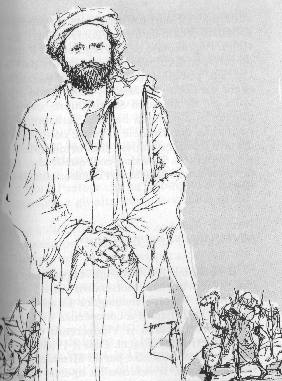 This is one of the many phrases that Comboni has left us as a proof of his donation and the conviction of his vocation.
This is one of the many phrases that Comboni has left us as a proof of his donation and the conviction of his vocation.





